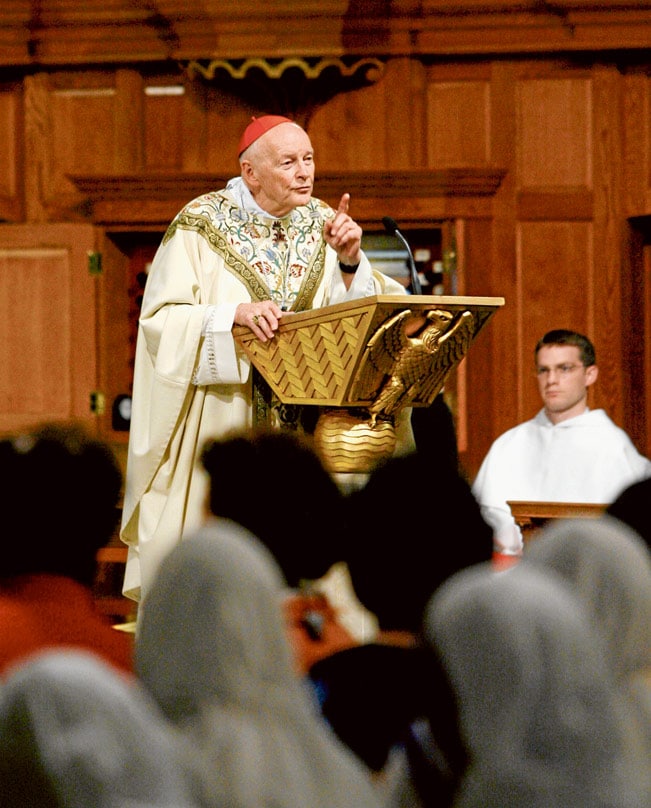
Last year I wrote that the clergy abuse crisis was more closely related to homosexuality than paedophilia, and that there was probably a much wider crisis in priestly celibacy. Afterwards, several priests contacted me privately on conditions of strict anonymity and confirmed what I was saying.
But I already knew that. People have been publishing entire books on this topic since the 1990s. They were mostly dismissed as an ecclesiastical tin-foil hat brigade, hell-bent on scandalising the faithful.
These people are now utterly vindicated, to the point where New York Times columnist Ross Douthat said recently, “I realised that if you wanted the truth about corruption in the Catholic Church, you had to listen to the extreme-seeming types, traditionalists and radicals, because they were the only ones sufficiently alienated from the institution to actually dig into its rot.”
It’s no coincidence that this July was the 50th anniversary of Humanae Vitae – the document that warned us what happens when you separate sexual union from openness to life (hint: any kind of sex becomes morally permissible).
We know that many bishops failed to support and promote Humanae Vitae. We saw the bitter fruits in the same-sex marriage debate in Australia, where our bishops showed their internal divisions and inability to hold a consistent line.
The McCarrick scandal has been a tremendous relief to thousands of disaffected Catholics, including investigative journalists, lawyers, and psychologists who have been struggling for decades to get the message out. The official responses – with a few notable exceptions like Bishop Edward Scharfenberger of Albany, New York – have been profoundly disappointing: stammering denial, or indignant slap-downs. The most insulting of all has been the call for ‘better policies’. How’s that working out for you?
Some root cause analysis: for decades, same sex attracted men have lied to their seminary directors, spiritual directors and bishops because they believed they were entitled to the priesthood, and that their personal judgement on this was more important than anyone else’s. Some admitted it, but had it minimised, excused, permitted, and ultimately rewarded with ordination. Those responsible are not just bishops, but all those seminary and vocations directors, psychological assessors, Mass-sayers-for-dubious-ministries, university chaplains, spiritual directors, and diocesan bureaucrats who turned a blind eye.
However, they are still protected by an enormous network of public relations (Exhibit A: Fr James Martin SJ), lies, secrecy, disobedience, and entitlement. This continues in places like Honduras, and also in those peculiar US dioceses which seem to be currently operating in a parallel universe with drag queens leading their Catholic gay outreach.
My second point – that there is a much wider problem with clerical chastity in celibacy – is also correct, although we insist on pursuing the same ridiculous approach of denial and slap-downs. I don’t know a soul, clerical or lay, who hasn’t been damaged by the sexual revolution. But I also know there’s no point in saying, ‘It’s always been like this.’
The solution is not married clergy, gay clergy, or even married gay clergy. It’s the same solution it’s always been: a renewal and restoration and re-catechesis of the Church’s complete teaching on sexual morality, and practical advice on how to get it right, at least most of the time.
For the last 40 years we have had Catholic marriage promoted, explained, and supported at every level of the Church. Perhaps it’s time to look at the chaste and/or celibate state in the same way.
We all know many faithful Catholics who can’t marry – or re-marry – for a whole range of reasons. All of us could benefit from some help to live lives that are just as holy and as countercultural as faithful married Catholic couples.
If lay Catholics who love the ministerial priesthood can successfully call it to account, then it will survive and be purified. If there are priests and bishops out there who resent this: Fathers, the lay people who love you are the only thing standing between you and an angry mob right now. I suggest you either stand back, or offer to hold our beer.
Finding ways forward will be painful. We are the Body of Christ; we must try to repair the damage, starting with the messier bits of our own sex lives. This means facing the real extent of that damage first. The Church has the medicine – courageous priests and bishops can use it, but it will take a lot less policy, and a lot more field hospitals and house calls.
Philippa Martyr is a Perth-based writer, researcher and part-time student.
